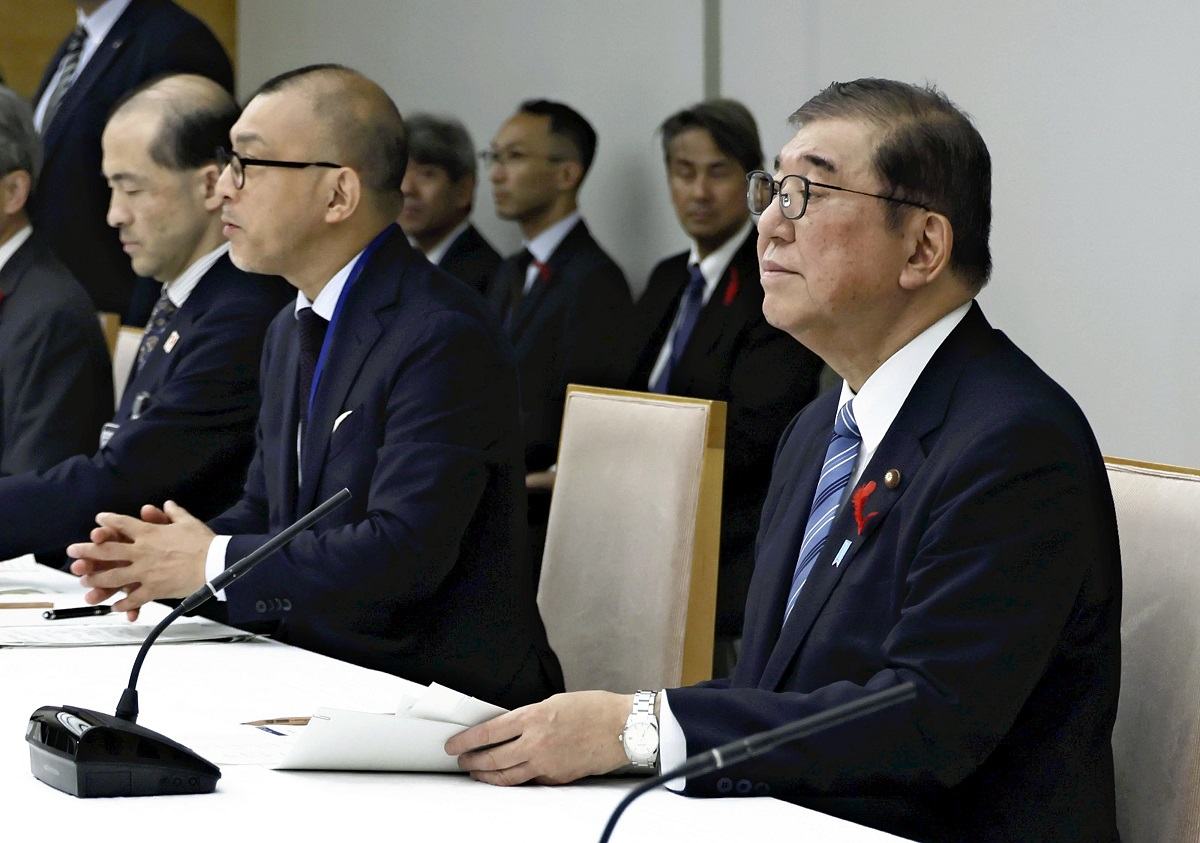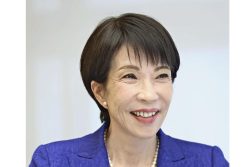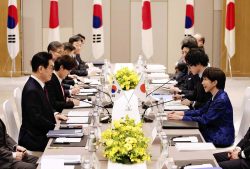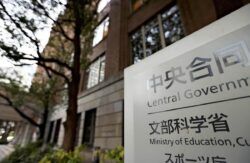Japan, ASEAN to Seek Common Rules Toward Decarbonization; Laos Summit to Focus on Calculating, Reporting Emissions

Prime Minister Shigeru Ishiba speaks at the Inter-ministerial Meeting for the Promotion of the Asia Zero Emission Community at the Prime Minister’s Office in Tokyo on Monday.
17:09 JST, October 8, 2024
Japan and the Association of Southeast Asian Nations will aim to establish common rules to promote decarbonization in Asia, according to a draft joint statement of the Asia Zero Emission Community (AZEC) summit to be chaired by Prime Minister Shigeru Ishiba.
Scheduled for Friday in Laos, the meeting will focus on promoting the establishment of rules on calculating and reporting greenhouse gas emissions in cooperation between Japan and the ASEAN, in a bid to strike a balance between decarbonization and economic growth.
Ishiba is scheduled to visit Laos from Thursday to Saturday to attend an ASEAN-related summit meeting and host the AZEC meeting in his first foreign visit since assuming office.
The AZEC is a framework proposed by former Prime Minister Fumio Kishida in 2022 to achieve decarbonization in Asia. Currently, Japan, Australia and nine ASEAN members, excluding Myanmar, take part in it. The upcoming AZEC summit will be the second meeting of the framework, after the gathering held in Tokyo in December last year.
According to the draft, the joint statement will stipulate the importance of simultaneously achieving the three goals of climate change action, economic growth and stable energy supply.
Asia is highly dependent on coal-fired thermal power generation. Taking into account the circumstances in each country, the meeting will affirm the shared principle of following diverse paths toward their goals.
The draft action plan, which includes concrete measures for the next 10 years, calls for creating and expanding markets that value efforts to reduce greenhouse gas emissions.
In Asia, many countries have yet to formulate rules on calculating and reporting greenhouse gas emissions from business activities. By providing Japan’s knowledge, the AZEC aims to help raise awareness among the participating countries and introduce common rules under Japan’s initiative.
Cooperation will also be deepened in the agriculture, forestry and transport sectors, where decarbonization is considered particularly difficult, and the development of sustainable aviation fuel technologies will be promoted.
Japan also plans to propose cooperative measures that utilize the country’s technological capabilities. They will likely include support through official development assistance for renewable energy generation, the development of power transmission and distribution networks, and the deployment of waste-to-energy technology to improve public health.
Top Articles in Politics
-

Japan Seeks to Enhance Defense Capabilities in Pacific as 3 National Security Documents to Be Revised
-

Japan Tourism Agency Calls for Strengthening Measures Against Overtourism
-

Japan’s Prime Minister: 2-Year Tax Cut on Food Possible Without Issuing Bonds
-

Japan-South Korea Leaders Meeting Focuses on Rare Earth Supply Chains, Cooperation Toward Regional Stability
-

Japanese Government Plans New License System Specific to VTOL Drones; Hopes to Encourage Proliferation through Relaxed Operating Requirements
JN ACCESS RANKING
-

Univ. in Japan, Tokyo-Based Startup to Develop Satellite for Disaster Prevention Measures, Bears
-

JAL, ANA Cancel Flights During 3-day Holiday Weekend due to Blizzard
-

China Confirmed to Be Operating Drilling Vessel Near Japan-China Median Line
-

China Eyes Rare Earth Foothold in Malaysia to Maintain Dominance, Counter Japan, U.S.
-

Japan Institute to Use Domestic Commercial Optical Lattice Clock to Set Japan Standard Time
























